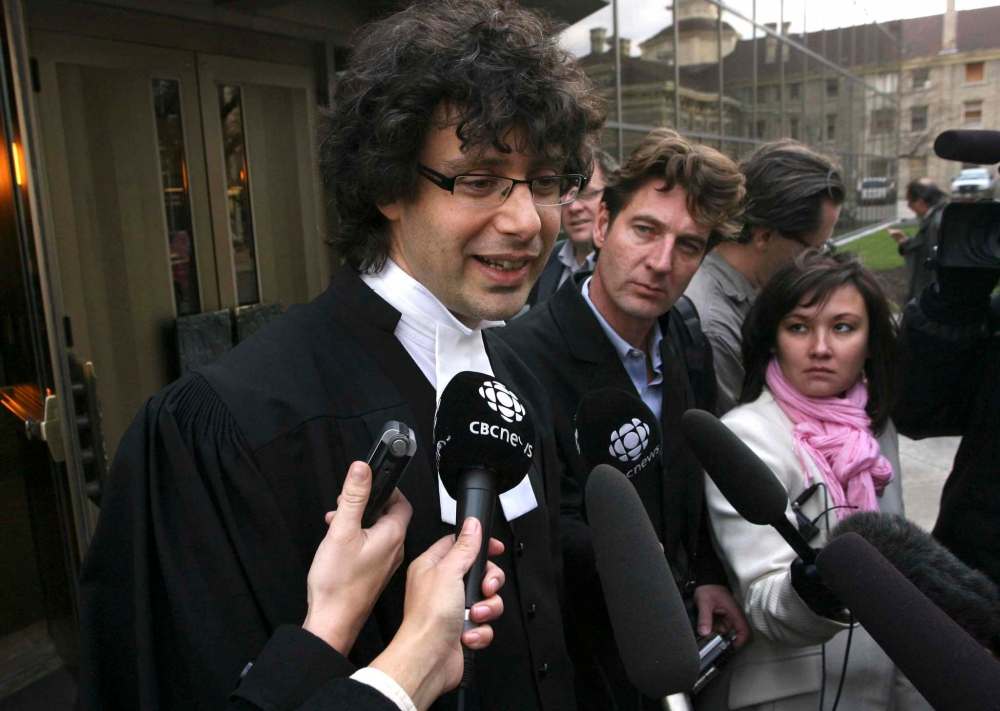Manitoba’s forthcoming cannabis laws lack ‘scientific clarity’: Defence lawyers
Advertisement
Read this article for free:
or
Already have an account? Log in here »
To continue reading, please subscribe:
Monthly Digital Subscription
$1 per week for 24 weeks*
- Enjoy unlimited reading on winnipegfreepress.com
- Read the E-Edition, our digital replica newspaper
- Access News Break, our award-winning app
- Play interactive puzzles
*Billed as $4.00 plus GST every four weeks. After 24 weeks, price increases to the regular rate of $19.00 plus GST every four weeks. Offer available to new and qualified returning subscribers only. Cancel any time.
Monthly Digital Subscription
$4.75/week*
- Enjoy unlimited reading on winnipegfreepress.com
- Read the E-Edition, our digital replica newspaper
- Access News Break, our award-winning app
- Play interactive puzzles
*Billed as $19 plus GST every four weeks. Cancel any time.
To continue reading, please subscribe:
Add Free Press access to your Brandon Sun subscription for only an additional
$1 for the first 4 weeks*
*Your next subscription payment will increase by $1.00 and you will be charged $16.99 plus GST for four weeks. After four weeks, your payment will increase to $23.99 plus GST every four weeks.
Read unlimited articles for free today:
or
Already have an account? Log in here »
Hey there, time traveller!
This article was published 21/03/2018 (2772 days ago), so information in it may no longer be current.
Defence lawyers who have handled marijuana-related impaired-driving cases in Manitoba are raising concerns about a lack of “scientific clarity” about how drivers’ intoxication levels will be measured before provincial sanctions are imposed.
Those sanctions — announced by the provincial government Tuesday in response to federal legislation that will legalize the drug — include automatic three-day licence suspensions on the first offence for drivers who fail a roadside test.
Police will be expected to conduct the roadside test using an “oral fluid” screening device to measure the presence of THC in saliva. (THC is the chemical responsible for most of marijuana’s psychological effects.)

Based on the results of the roadside test, the police will have to decide whether to do a drug recognition evaluation, or take the driver in for a blood test.
A driver’s licence could be suspended if they have between two and five nanograms of THC per millilitre of blood (ng/ml) in their system. More than five nanograms would be considered a high-level impaired driving offence. In those cases, drivers could have their licences automatically suspended for three months and their vehicles impounded for at least 30 days. They’d also have to undergo a mandatory addictions assessment at the Addictions Foundation of Manitoba.
Those legal limits for intoxication have also been imposed in U.S. states that have legalized marijuana. But they could mean people who have built up a tolerance to marijuana, such as medical users, could be considered legally impaired as soon as they get behind the wheel, said defence lawyer Danny Gunn.
“We want to try and limit the amount of people who are impaired on the road, and I agree with that, but part of the challenge is, we don’t really have a serious connection between levels of marijuana in your blood in terms of nanograms per cent, like we do in terms of alcohol,” Gunn said.
“Part of the problem is that in the movement to advance this legislation, you’re going to end up with people paying the consequences for, I think, lack of scientific clarity at this point in terms of what constitutes actual impairment from a nanogram percentage.”
Gunn and other lawyers spoke about the importance of accurate screening tests, both for automatic licence suspensions and once the cases are brought to court. The drug recognition evaluations conducted by police officers, they said, can be subjective.
U.S. states that use “mouth fluid” roadside tests have seen cases of false positives, said defence lawyer Mark Wasyliw.
“The science hasn’t really caught up with what they’re trying to do here. They’re borrowing heavily from the impaired-driving rules (for alcohol intoxication) where there’s a lot more science and the devices that they’re using, we know are a lot more reliable than what they’re trying to bring in for this drug testing,” Wasyliw said. “So this is potentially going to be really unfair to a lot of people.”
Marijuana-impaired driving cases are relatively rare in Manitoba, and “they don’t have a very good conviction rate,” Wasyliw said, because effects of impairment are more difficult to detect. In his 18 years as a lawyer, Wasyliw said he typically handles 150 impaired-driving cases annually. He’s only dealt with about 10 in total that are related to marijuana use.
Defence lawyer Michael Dyck said he’s seen only a small number of impaired-driving cases involving marijuana use.
In 2015, he represented a Steinbach man who was arrested for driving too slowly and was charged with driving while impaired by a drug for his alleged marijuana use. The man was acquitted after the judge decided there was not enough evidence he was impaired, despite the police officer’s evaluation on the scene.
The man had been driving 80 km/h in a 100 km/h zone in winter conditions, only 250 metres from the spot where the speed limit dropped back down to 80.
Dyck said the new marijuana-related impaired-driving offences could be used against people who were otherwise driving safely and didn’t face any other charges under the Criminal Code or Highway Traffic Act.
“That’s what my concern is, is that it could catch a large group of people who are trying to be law-abiding citizens and that aren’t causing a danger to the public,” he said.
katie.may@freepress.mb.ca
Twitter: @thatkatiemay

Katie May is a multimedia producer for the Free Press.
Our newsroom depends on a growing audience of readers to power our journalism. If you are not a paid reader, please consider becoming a subscriber.
Our newsroom depends on its audience of readers to power our journalism. Thank you for your support.




